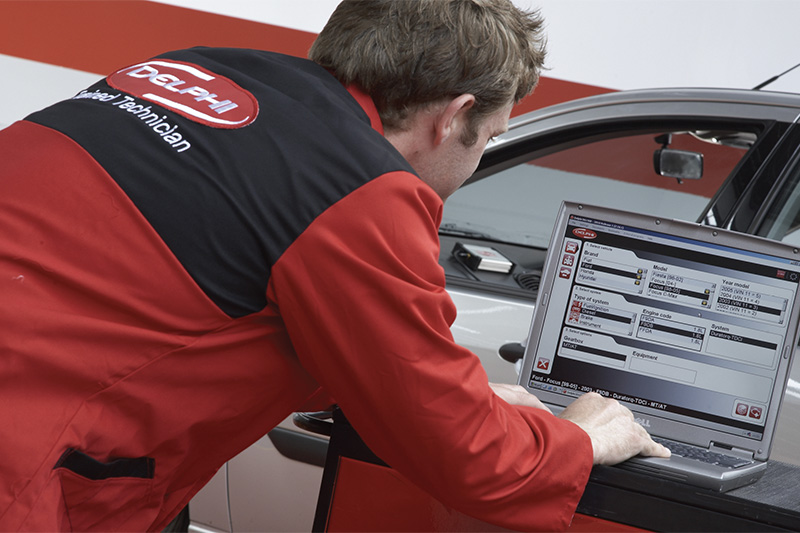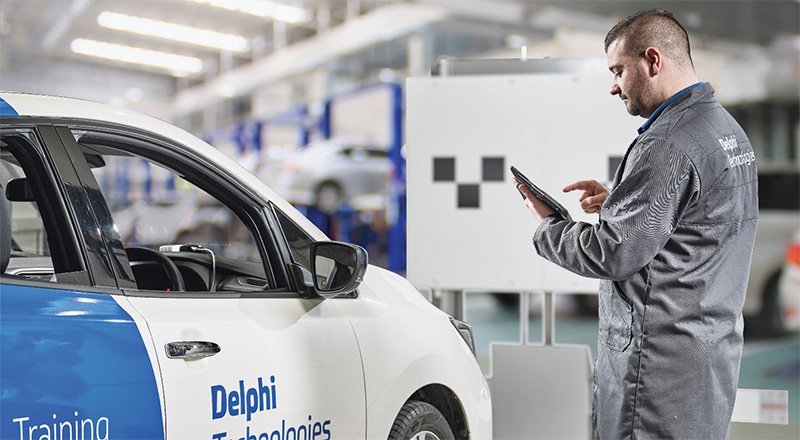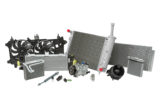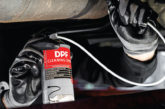
Delphi explores what the unstoppable rise of ADAS means for the modern workshop.
While the self-driving car remains frustratingly out of reach, we’re beginning to see the first steps towards driving autonomy in the vehicles that requent our workshops. With Tesla leading the way on ADAS (Advanced Driver Assistance Systems) features, the ‘trickledown’ effect ensures these electronic aids appear on more mainstream machinery.
What does this mean for our workshops? As usual, staying on top of maintenance requirements requires investment in skills and equipment. Advanced systems such as adaptive cruise control, park assist, road sign recognition, lane keep assist and autonomous emergency braking are fitted to family cars such as the VW Golf and Ford Focus, and all inevitably need maintenance, diagnosis and repair.
Driving aid
Manufacturers are embracing these technologies for several reasons. Firstly, the convenience and reassurance provided by lane keep assist and adaptive cruise control are often welcomed by drivers. High-mileage company drivers enjoy letting the computer take the strain in busy motorway traffic, but there is an important safety aspect to ADAS, too. Safety gurus at Euro NCAP are actively encouraging manufacturers to develop and fit ‘assisted driving’ features, by weighting their safety ratings towards vehicles equipped with electronic aids. A poor Euro NCAP rating for any car is bound to negatively impact sales, thus the safety ‘arms race’ is driven forwards.
All of this means the vehicles frequenting repairers’ workshops can be bristling with new technology, inevitably subject to the same frailties and problems seen on more familiar mechanicals. In short, ADAS represents a golden opportunity for aftermarket repair revenue, particularly when vehicles fall out of their warranty period. A typical 2019 VW Golf, for instance, comes equipped with lane keep assist, adaptive cruise control, auto-braking and predictive pedestrian protection – and is now outside of the standard manufacturer warranty.
Luke Garratt, technical services manager, Delphi Technologies Aftermarket, said: “It’s a minefield for repairers today, with a plethora of new features all requiring diagnosis and repair. Getting your head around the technology is just one hurdle. The new tools and software are also an essential part of your armoury.
“Tools such as Delphi Technologies’ DS Vehicle Communication Interface (VCI) are essential in interrogating and identifying faults in these complex systems. The VCI Diagnostic Software is constantly updated, with three major software updates included in a 12- month subscription. That gives technicians the assurance that the vast majority of contemporary vehicles can be supported.”
Pass Thru
Proper diagnosis and repair of ADAS features often requires ‘pass-thru’ capability. This is effectively an OEM-monitored network, ensuring vehicle control modules remain secure against hackers and correctly configured. Delphi Technologies’ DS and Bluetech VCIs both support pass-thru and provide a convenient dashboard for accessing the necessary ‘tokens’ for most popular OEM systems including VAG Group, BMW, MINI, Vauxhall, Chevrolet (Europe), Toyota, Lexus, Jaguar Land Rover and Ford.

For instance, if the forward-facing camera requires replacement, pass-thru capability is required to re-calibrate it. These components are no longer ‘plug-and-play’, that is, fitting a new unit requires registration and resetting with the relevant ECU, all controlled via the OEM pass-thru portal.
“It’s no longer possible to simply replace components to effect a repair,” continues Garratt. “To protect customers from malicious hacking attempts, access to vehicle ECUs is carefully controlled and monitored by the OEMs. Authorised access is the only way to update an ECU when a component is replaced, and to remove any fault codes that might be present. Delphi Technologies’ diagnostic tools and Pass-Thru package removes the hassle of contacting individual OEMs for access tokens, and setting up unique accounts for each manufacturer.”
Clearly, these automotive advances require a little adjustment for repairers. Fortunately, Delphi Technologies’ training academy can educate technicians quickly and conveniently via online learning. The Delphi Technologies Academy training list includes comprehensive coverage of modern ADAS diagnostics, including introductory courses as well as calibration of popular Type 1 and Type 3 radars. Forward-facing cameras and ADAS lighting systems are also covered, and all of the modules are less than ten minutes in length. For technicians looking to boost their credentials, each module awards Institute of Motor Industry (IMI) Continuing Professional Development (CPD) credits.
More in-depth training is available in a classroom/workshop environment. Delphi Technologies operate a full suite of IMI CPD accredited courses from their Warwick training hub. The two-day ADAS course covers ADAS features with brand examples of ADAS components such as cameras, radars, lidars, ultrasonics, infrared and night vision systems. Alongside these electronic elements, the ADAS course teaches technicians about the importance of wheel alignment and thrust angle. The course is recognised with a Master Technician award for successful completion, and equips technicians with the knowledge and skills required to tackle modern-day ADAS repairs – which represents a profitable revenue stream for garages.
ADAS repairs
Even simple procedures like checking and correcting tracking are necessary for correct operation of many ADAS features. For example, the latest breed of LED and laser headlights rely on a carefully calibrated camera, as well as sound wheel alignment, to selectively dim the beam pattern for oncoming traffic. Delphi Technologies’ Academy learning helps technicians appreciate the wider picture by focussing on each ADAS function in a simple, logical manner.
Ultimately, ADAS repairs will become as normal and familiar as brake pad changes. As is the way with the motor industry, technology is continually evolving. Keeping up can be a challenge, but the solutions offered by Delphi Technologies take the pain out of learning.
Garratt sums up: “Working on modern cars has become a highly technical affair. Because of our unique relationship with manufacturers, we’re able to offer the know-how and support that was previously the preserve of OEMs. That experience pays off not just in the versatile tooling that accesses vehicle ECUs, it’s also in the learning about how these systems work, and how to fix them.”









